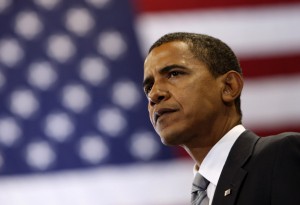 United States President Barack Obama is expected to issue an executive order on cyber security following his upcoming State of the Union address on February 12.
United States President Barack Obama is expected to issue an executive order on cyber security following his upcoming State of the Union address on February 12.
The long-expected executive order will create a voluntary programme that will call for companies in critical infrastructure industries to agree to adopt a minimum set of security standards created by the government, said a spokeswoman for Senator Tom Carper, Chairman of the Senate Homeland Security and Government Affairs Committee.
The spokeswoman, Emily Spain, said that Carper expects the order will be issued before the end of February, based on signals he has received from the White House.
The imminent issuing of the order was first reported by The Hill, a Washington D.C.-based newspaper that focuses on covering Congress.
Once it is released, Carper said he will solicit feedback about the order during a joint hearing on cyber security with the Senate Intelligence committee. Carper and other committee members will also invite officials from the Obama administration to explain the executive order.
The Obama executive order has been in the works since at least last August.
Administration officials have said it will be designed to help government agencies and critical infrastructure companies implement improved controls to protect computer networks against potential cyber attacks.
Obama’s Homeland Security adviser, John Brennan – who has been nominated by Obama to head the Central Intelligence Agency – said last year that the administration was planning an executive order because Congress has long failed to pass comprehensive cyber security legislation.
The White House had backed the Cyber Security Act, a failed proposal to bolster critical infrastructure security by enabling improved threat information sharing between government agencies and private companies.
The bill, which stalled in Senate over Republican concerns that it was too prescriptive and vested too much enforcement authority with the Department of Homeland Security, called for the creation of an inter-agency council to work with critical infrastructure owners to develop voluntary cyber security standards.
The bill also called for some government agencies to submit to an annual security certification process, and offered liability protection for private companies that are voluntarily certified each year.
An alternative Republican-backed bill, called SECURE-IT, failed to gain much support among Democrats and failed as well.
The fate of the two bills was identical to numerous other cyber security bills proposed by various lawmakers from both parties in both the House and the Senate over the past few years.
Obama’s plan to issue a cyber security order elicited predictable responses from both parties.
Democratic lawmakers urged the president to use his full authority to protect critical networks against cyber threats in the face of Congress’ failure to pass legislation. Republicans, meanwhile, have indicated a preference for legislation passed by Congress to a presidential executive order.





